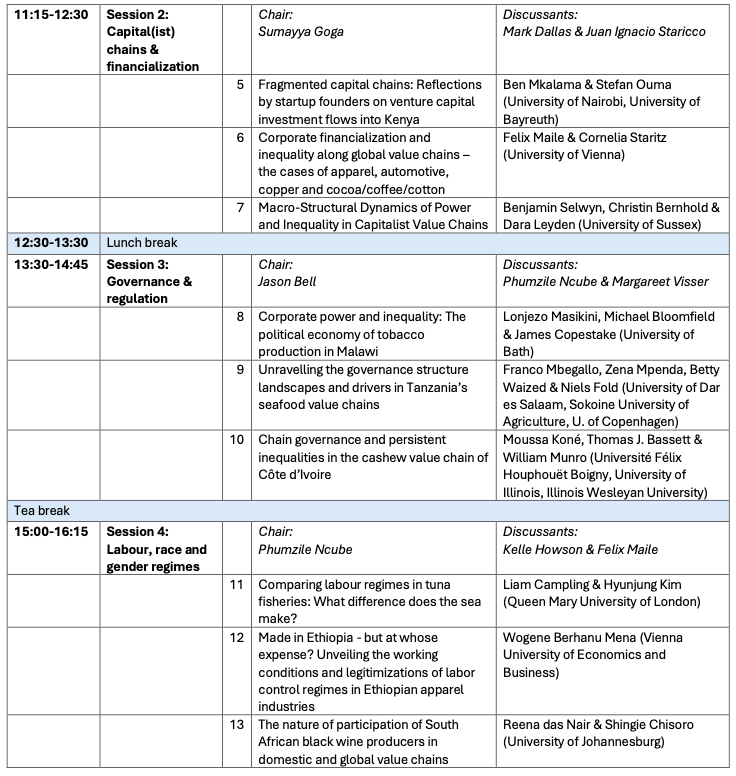13 and 14 June 2024
Venue: Johannesburg Business School, University of Johannesburg (JBS Park, 69 Kingsway Road, Auckland Park, Johannesburg)
The globalization of production has yielded new winners and losers within and across nations, spurring much debate on the different forms of inequality that it engenders. There is also increasing interest in how the emergence and consolidation of global, regional and local value chains and production networks
may exacerbate inequalities – and whether and how value chains may be leveraged to mitigate them. The dominant discourse speaks for more widespread inclusion and upgrading towards higher value-added activities as the main pathways for addressing global North-South inequalities. But despite massive value chain participation, many Global South actors have failed to significantly improve and/or retain the value added they create. Existing power dynamics within value chains and production networks have been shown to play a significant role in limiting the success of upgrading efforts and value chain-led development more broadly, contributing to persistent inequalities.
Scholars are therefore asking critical questions about the degree to which participation in value chains facilitates positive outcomes – such as improved firm competitiveness, employment generation, better working conditions and livelihoods – and/or negative ones, like immiserating growth, environmental degradation, labour exploitation, and increased inequality.
While the role of various forms of power is being increasingly examined in the analysis of governance in value chains and production networks, inequality has been approached rather implicitly and has often been confused or equated with power asymmetries. In this conference, we seek to more systematically link analyses of power in value chains and production networks with different dimensions of inequality. We thereby aim to engage with the conditions under which inequalities are challenged, mitigated,
or exacerbated.
Past research has shown that power and inequality may reinforce each other, but also that there can be trajectories of change. Power asymmetries may be contested by supposedly ‘powerless’ actors; disruptive events such as the COVID-19 pandemic may reshuffle power constellations; ‘silent’ powerful actors such as regulatory institutions may reclaim influence; and private and public governance instruments may shift power balances, in turn re-shaping existing inequalities.
To identify time-sensitive action points, where political pressure or strategic action in relation to disadvantaged actors is possible and effective, we seek to further develop analytical frameworks that can guide a more focused and empirically comparable study of how power dynamics shape different dimensions of inequality in value chains and production networks.
To take stock of the state of the art in this field and chart new research and policy directions, the Centre for Business and Development Studies (CBDS), Copenhagen Business School and the Centre for Competition, Regulation and Economic Development (CCRED), School of Economics, University of Johannesburg are organising a two-day international conference.
For any question of clarification you may need, please contact the organizers via email.
Click here to download the programme.




